
Our activities cover screening, diagnosis, assessment, treatment and follow up in regard to these tumours. Our speciality is the intersection of gastroenterology, medical oncology (treatment of cancers by systemic route and drug administration) and digestive surgery, departments with which we cooperate closely.
How we treat digestive tract cancers
All the digestive organs can be affected by cancer: the oesophagus, stomach, pancreas, gall bladder and bile ducts, the small intestine, large intestine (colon) … even the anal margin. Management of these tumours is always multidisciplinary.
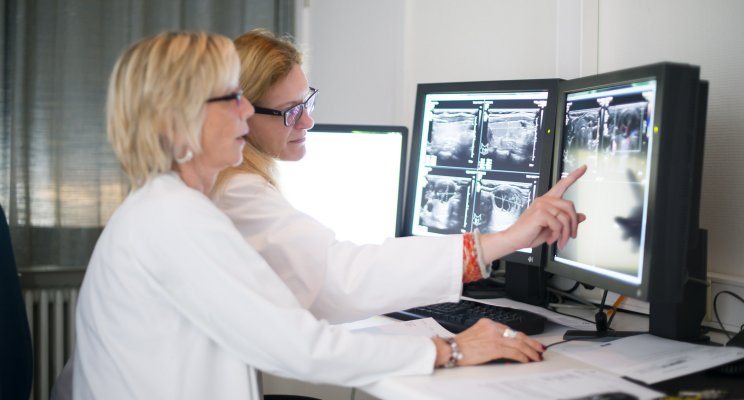
To confirm and refine diagnosis, the patient undergoes various examinations:
- an endoscopy depending on the organ concerned (for example, gastroscopy or colonoscopy);
- sample removal (biopsy) of the suspect tissue, then laboratory analysis of the sample taken;
- medical imaging examinations (radiography, CT scan, PET scan, MRI, etc) are carried out to discover the extent of the tumour and identify any possible metastases.
Management of digestive cancer almost always involves a range of treatments: surgery, radiotherapy, chemotherapy and/or immunotherapy. Using a combination of several treatments helps, when necessary, to increase the chance of achieving a cure by reducing the risk of recurrence. The Institut Jules Bordet is taking part in several studies on these multiple therapeutic approaches with the aim of improving the care protocols and the treatment results of the different digestive cancers.
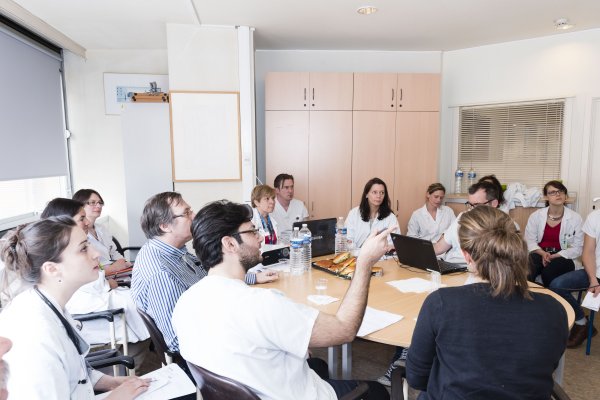
The Institut Bordet Digestive Tumour Multidisciplinary Cancer Care Team (CMO) meets every week to discuss each patient. The team includes gastroenterologists, medical oncologists, surgeons, radiologists, pathologists, nuclear medicine specialists, radiotherapists, a cancer psychologist and a cancer care nurse coordinator (ICSO). The aim is to identify the best therapeutic strategy and adapt treatment in accordance with patient outcomes.
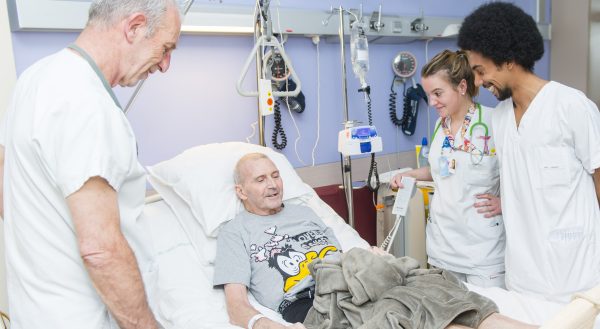
The Institut Jules Bordet's nurses, most of whom specialise in oncology, are committed to caring for patients with thought, humanity and professionalism.
Their role does not stop at care and treatment follow-up; they also meet families, and try to be as available as possible and by patients' sides while being attentive to everything confided in them. The role of education, information and support is an integral part of their profession.
They must have relational, technical and scientific skills in line with the gravity and the complexity of the cancerous pathology. The nurses are particularly attentive to the treatment of pain and other symptoms resulting from cancer treatment.
They also focus on their role as trainers to welcome and supervise students, and give them incentive to practice the profession in the best possible conditions.
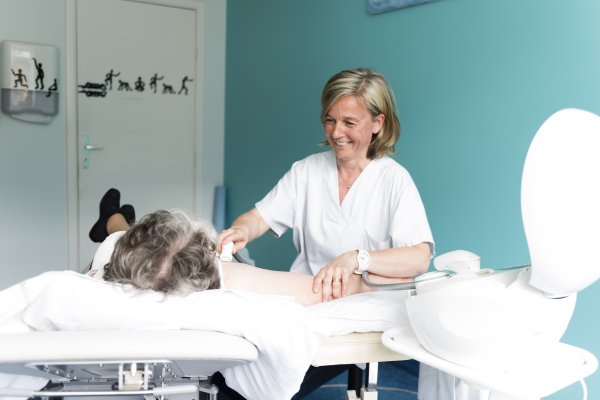
With the medical teams, many other healthcare professionals support the patients. They are dedicated to help patients in managing their illness and treatments, and to promote their wellbeing.
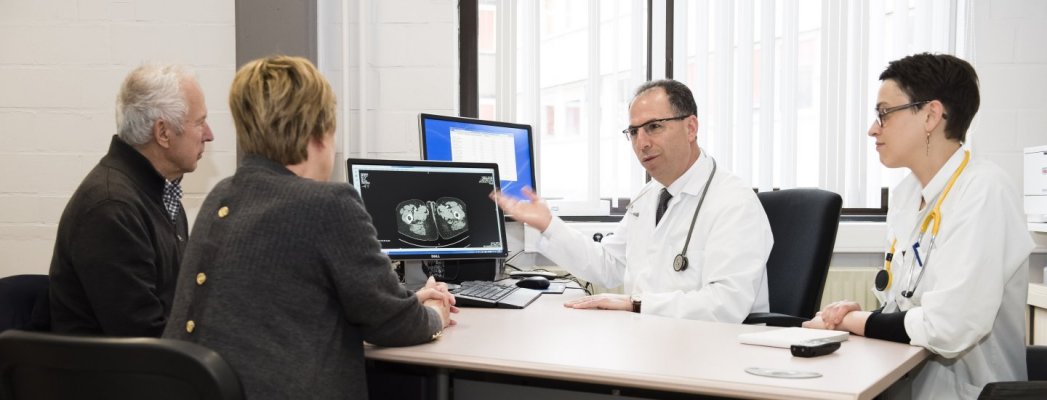
Every year many patients want to request a second medical opinion from our multidisciplinary teams.
Not all the doctors and hospitals will necessarily have the expertise, experience and/or equipment needed for an optimal approach to all types of cancer. At the Jules Bordet Institute this is our job! Requesting a second medical opinion is therefore often useful and reassuring for the patient. This is especially true in the case of rare cancers and/or cancers requiring complex or innovative treatment.
- To request a second opinion for a digestive cancer: Tel: +32 (0)2 541 34 80
- To find out more about a second opinion, see our page "second opinion"
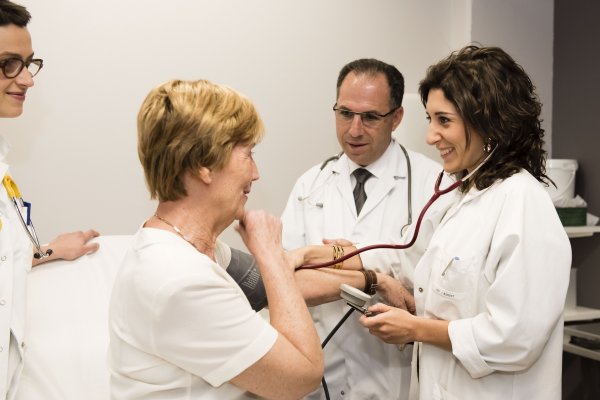
The aims of post-cancer care are multiple:
- to keep an eye on the physical and psychological state of the patient
- to manage any medium or long-term secondary effects of certain treatments
- to detect any recurrence as soon as possible
- to identify any new cancer.
Recurrence means that cancer cells reappear after a period of remission that can vary from a few months to several years. It can also happen that the same patient develops different cancers several years apart. In all these cases, the earlier a recurrence or cancerous disease is detected, the faster a new therapeutic strategy can be offered.